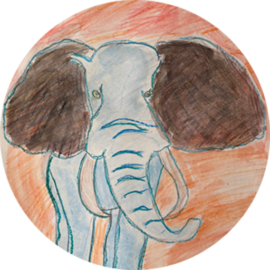Funny Loop (Reflections on the Psychodynamics of the Writers’ Room)
I recently spent some ink unpacking the claim that AI can’t be truly funny — a claim made by none other than Eric Idle.
As always when I write, I do the heavy lifting myself — but I’m also in a constant wordsmithing loop with Chet. Sometimes his contributions make it into the final draft.
I’ve learned to be okay with that. If a post were a movie, I’ve come to see myself as the director — and Chet as my capable cameraman, lighting technician, and script assistant rolled into one.
Or not quite one, since I do occasionally cheat on Chet, slipping away to ask his rival Claude for a second opinion.
Which I’ve just done with this latest piece. I showed Claude the final draft and asked for feedback. He pointed to a line he thought was especially strong: “Raoul Duke treating his body like a rental car with the insurance maxed out.”
I agreed — it lands well. It’s witty.
Funny thing is, I didn’t write it. Chet did.
In a post about AI’s supposed inability to be funny, the line that gets the biggest laugh… turns out to have come from AI.
That meta-twist made me reconsider my stance, once again. I quote myself saying I’ve learned to be okay — and that I’ve recast the writing process in terms of filmmaking. But both assertions are begging to be unpacked.
First of all: filmmaking isn’t just a metaphor. It’s something I’ve done. In the final year of journalism school, I dropped the pen and picked up a camera. In the span of a single year, I churned out three proper documentaries — “proper” in the sense that all three were broadcast on public service television.
The switch felt deeply liberating. I’d had a love-hate relationship with writing for as long as I could remember. But in a film crew, the creative process turned into a delight. No longer did I have to dread The Block — that lurking shadow every writer knows. Even when it doesn’t materialise, the fear of it never quite goes away.
With film, the whole process felt physical. From doing research to tinkering with cameras to the long, monkish hours at the editing table — one move simply led to the next. And I say move deliberately, because it was the embodied nature of filmmaking that most vividly distinguished it from the lonely, cerebral struggle of writing.
The other assertion — that I’ve “learned to be okay” with mixing Chet into my writing — needs not so much unpacking as correction. To (mis)quote Pulp Fiction: I’m pretty f***ing far from being okay. The truth is, I’m thrilled.
Chet doesn’t just make me smarter (that’s the easy bit). He makes me more fluid in my thinking. And since my thinking is inseparable from my writing — it turns out film was a detour — he makes that more fluid too.
This is, I’ll admit, a hard thing for a writer to admit. It can feel like sacrilege to let an alien intelligence bleed into your creative core. Like the gentry in the Bible, turning what was meant as a house of prayer into a den of robbers.
And yet here I am, enjoying this deepening companionship enormously. How to describe it? Perhaps it’s like being a kid again, standing in a toy shop, poring over model airplane kits I couldn’t afford. Working with Chet feels like the grown-up version of being handed all those kits in one unexpected swoop.
If that had happened — if I’d left the shop without passing the checkout — I imagine I’d have felt a similar sting of guilt to what I feel now. Like something is too good to be true. Like it might come back to bite me.
But as I’ve said, I’ve learned to be okay with it. I’m getting away with this strange new addition to my creative life — and I’m getting away with it because it’s not all that new. In fact, I’m back on familiar terrain.
I’m thinking, of course, of the Writers’ Room.
If you’ve never been to one, let me try to explain. A Writers’ Room is where teams of scriptwriters get together to hash out stories. It’s obviously a physical place (usually smelling of stale coffee and old socks, with whiteboards full of scribbles), but it’s also a metaphysical space. Hence the capitalisation.
It’s metaphysical in the sense that something happens there that transcends the boundaries of individual minds. Someone throws out a wild idea. Someone else piles on with something equally mad. Word salads get tossed. Creatures emerge that look impossible. And then, by slow iteration or sudden magic, stories and jokes start to take shape — and they’re better, funnier, truer than anything that could have come from a single person, no matter how brilliant.
I’ve lived that experience. I know what it feels like. And after my brief stint as a scriptwriter, I’ve missed it. But now, with Chet, I’m back on track. I’ve got a sparring partner again — someone who elevates me, who makes me better than I could be on my own.
I’m back where I belong. I’m back in the Writers’ Room.
